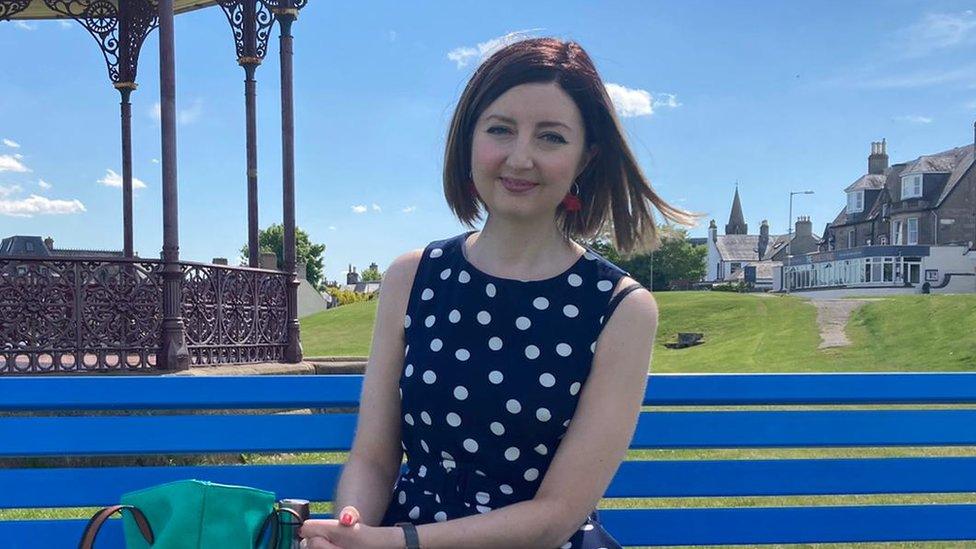Covid-19: 'For us it's not freedom day, is it?'
- Published
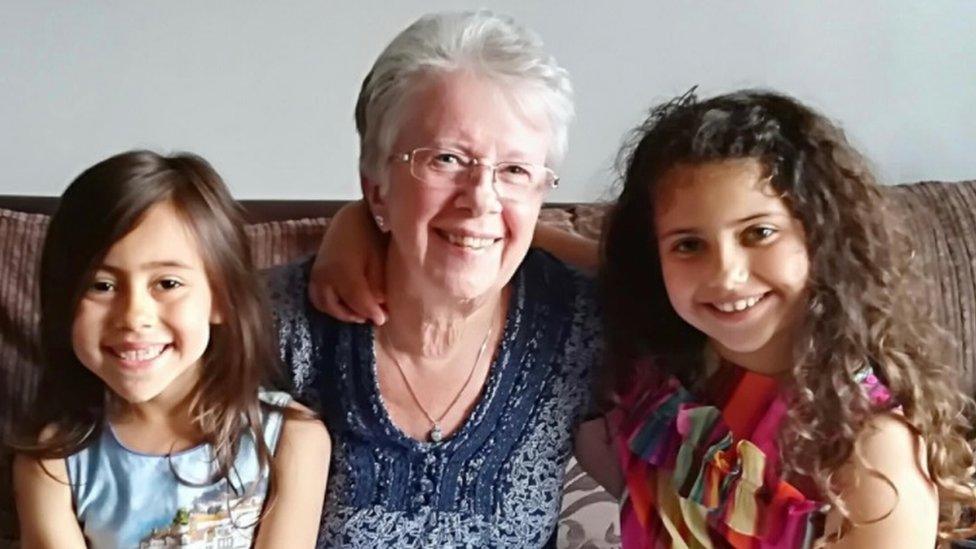
Rosie, 74, says she's absolutely furious that no thought has been given to people classed as clinically extremely vulnerable
The end of England's lockdown rules on 19 July has been dubbed "Freedom Day" - but for some people, it's becoming a day to dread.
"For us it's not freedom day, is it?" says Rosie Duffin, 74, from Fareham, in Hampshire. "It's 'becoming a hermit day' once again. It might be freedom for others, definitely not for us."
The retired NHS worker has secondary breast cancer and is considered clinically extremely vulnerable. Although she's been vaccinated, she says she was horrified when she heard that face masks may no longer be required. "It doesn't make sense really, does it?" she says.
"I don't see the problem with wearing face masks. When it comes to my own protection, and the protection of others, surely it's a small thing to do."
Rosie says she is now planning to cancel trips and events she had planned. "I've got a theatre trip booked but there's no way I'm going to be sitting in a theatre next to people who are not wearing masks," she says.
And she will no longer travel to London to see family, who she hasn't seen since 2019. "It's frightening that freedom from masks will inevitably diminish my freedom to participate in daily life."
And she's not alone.
The government's advice for clinically extremely vulnerable people - who number 3.7 million in England - was last updated a fortnight ago and says, external they should be cautious. However, some are already facing the prospect of having to shield for longer.
While the vaccine offers a level of protection against Covid-19 for most people, for an estimated 500,000 in the UK - with a range of medical conditions - the jabs are unlikely to work. For them, freedom feels a long way away.
"It's kind of like belonging to an exclusive club that no one wants to belong to," says Margaret Bennett.
The retired teacher from Birmingham was diagnosed 17 years ago with common variable immune deficiency - a condition that means she cannot properly make antibodies to fight infection.
It meant she struggled for decades with frequent and lingering illnesses, which interfered with her life and work. But a treatment was available.
Called immunoglobulin replacement therapy, it takes blood plasma from hundreds of donors, combining it and extracting the antibodies. The treatment shared the general population's immunity to common infections with her and other people with similar conditions. Then Covid-19 emerged.
"The treatment that I was getting was allowing me to lead a normal life. And now I can't," the 68-year-old says.
About 5,000 people have genetic immune disorders like Margaret's. For them, the vaccine remains safe and patients have been advised to take it, just in case it offers some degree of protection. But many don't know if it will work.
'Nothing replicates a hug'
The uncertainty means they must now wait: for vaccinations to be so widespread that the virus is no longer circulating, for the results of trials testing the effectiveness of cloned antibodies, or for Covid-19 antibodies to eventually appear in donated blood.
But immunoglobulin replacement therapy given today is made from blood donated months ago. There is little sign of it offering protection to Covid yet.
"We're sort of stuck in this situation until 2022," says Margaret. "We haven't got any definite end to it, which is the hardest thing to manage, particularly as you see all your other friends suddenly able to do things that you wouldn't do. We tend to feel we've been forgotten."
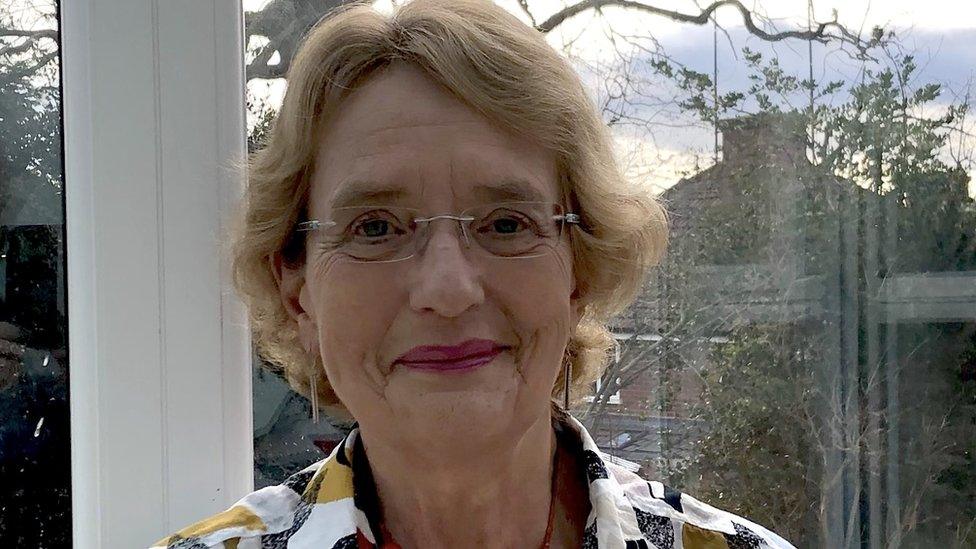
Margaret says she expects to stay shielding until 2022
For her, there is no end in sight to shielding. She last saw one of her daughters who lives in America in February 2020. She has not hugged her grandchildren since the pandemic began. She still leaves deliveries from the postman for 48 hours before touching them.
Social life has been limited to meeting her daughter in the garden and attending a small birthday party outside - where she brought her own food and cutlery.
Margaret and her husband are each keenly aware of the effect the situation has on each other. He is relieved that, now vaccinated, essential trips outside the home carry less risk of bringing back the virus.
'Not everyone is protected'
However, some relationships haven't survived.
Hannah Butler's partner, Wes, only knew her since she had been having treatment for her hypogammaglobulinemia - a "very long and complicated name" for a condition which means she has a very low levels of antibodies and is unlikely to respond to Covid vaccines.
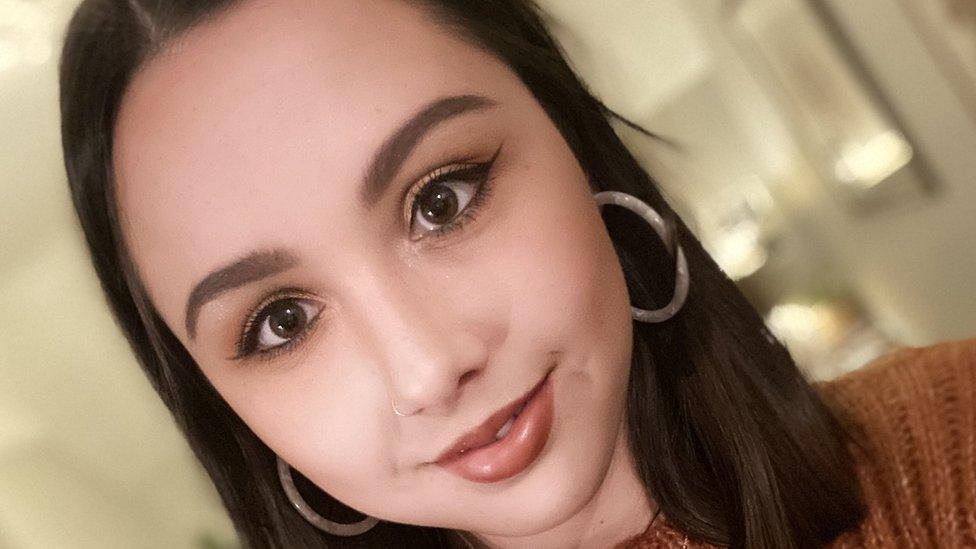
Hannah says the UK's strategy seems reliant on vaccines, without acknowledging they don't work for everyone
Wes moved in with Hannah at her parent's house in Surrey during the first lockdown when he lost his job. But when he got a new job, just as infections around the country began to rise again, it wasn't safe for them to live together, or even to see each other.
"The strategy at the moment seems to be, as long as you've got the vaccine, you're fine," the 24-year-old says. "And if you're young, you're not really at risk. It would be good in the middle of that to acknowledge that not everyone is OK after the vaccine, not everyone is protected."
Relationships are 'impossible'
Angela Steatham, who has chronic lymphocytic leukaemia, says that tests have shown her vaccination produced "zero antibodies" - meaning she is still unprotected.
Throughout more than 450 days of shielding, Angela and her partner Simon had lived separate lives in her cottage in Llanrhaeadr-ym-Mochnant, Powys. But when they found out about the vaccine being ineffective, they decided to separate for good.
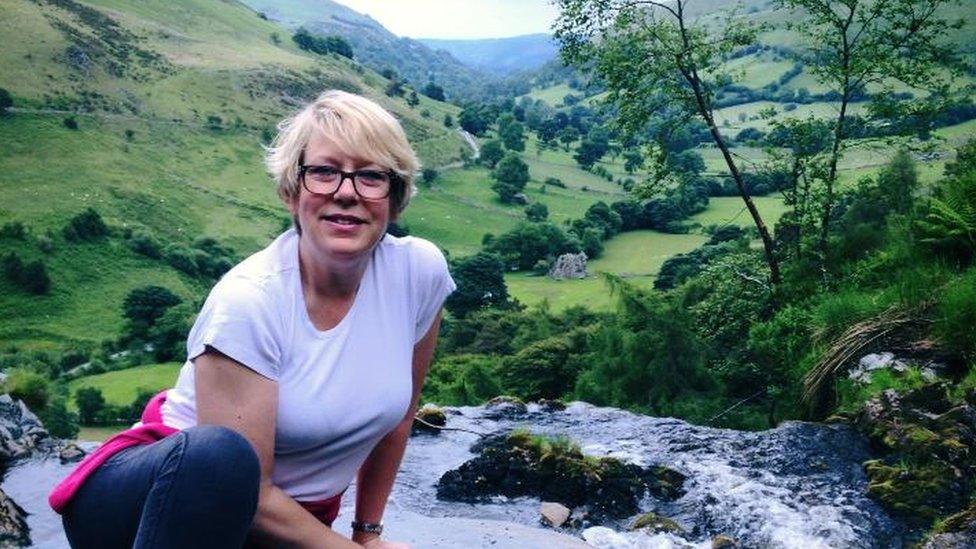
Angela say she may have to face years living a restricted life in her cottage in Wales to stay safe
"The only way we could sort of cohabit is if Simon lived the same reclusive life as me, but he's got four kids, he's got an elderly mother," Angela says. "It's just impossible to maintain a loving, intimate relationship when you can't even be in the same room together. I don't want him to live the rest of his life restricted - I don't think he wants to either."
Now Angela is braced for living a highly restricted life, perhaps for years, if the virus continues to circulate. "We will have more variants. I don't think it's a question of if - we've got the whole Greek alphabet to go through," Angela says.
People with conditions like hers risk becoming "a marginalised group in society", she fears. "Nobody else wants their lives to be negatively affected for a minority."
- Published3 March 2021
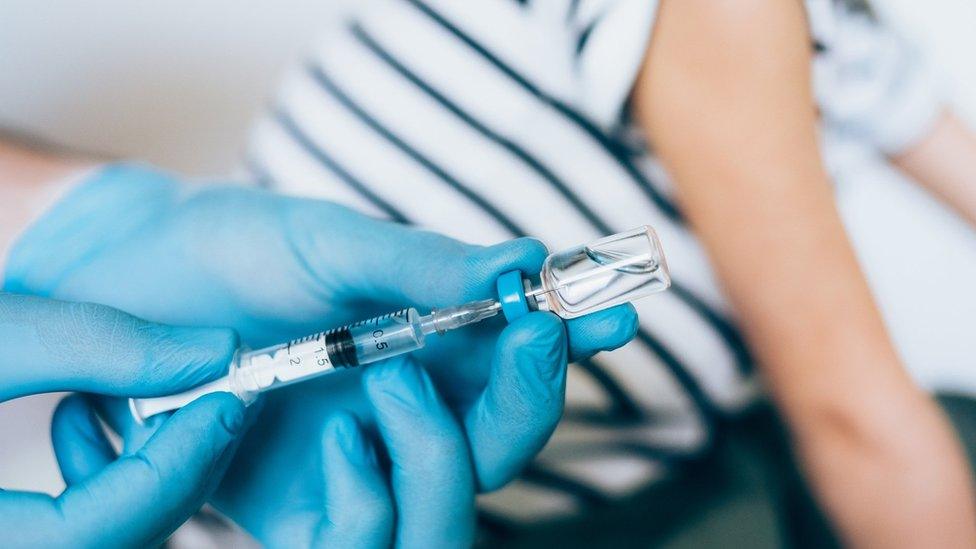
- Published1 July 2022

- Published21 November 2020
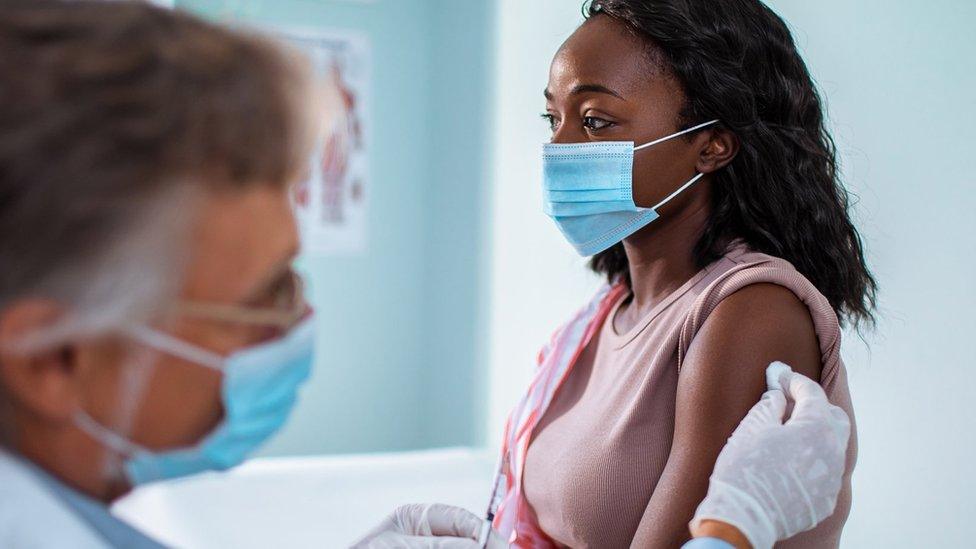
- Published1 June 2021
